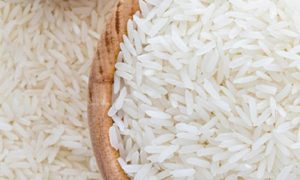Philippines Gov’t extends rice import ban to 30 days to protect farmers

The Philippine government has extended its rice import ban by at least 30 days, possibly until year-end, to protect farmers as palay prices plunge to PHP6–8/kg. Agriculture Secretary Francisco Tiu Laurel Jr. said measures include emergency procurement, added NFA storage, and a national floor price for palay.
MANILA – The government will extend the current two-month rice import ban for at least 30 more days to cushion the impact of plunging farmgate prices of palay (unhusked rice), the Department of Agriculture (DA) announced Monday.
DA Secretary Francisco Tiu Laurel Jr. said the decision, approved by President Ferdinand R. Marcos Jr., aims to support Filipino farmers during the peak harvest season.
Tiu Laurel said the ban could even last until the end of the year, depending on market conditions.
“It has been decided to extend the import ban for at least 30 days, and it is even possible to extend it until the end of the year,” he said in an ambush interview, adding similar calls from rice millers and traders.
To date, the buying price of palay has dropped back to PHP8 per kilogram after previously reaching about PHP14 per kg in some areas, and even as high as PHP17 per kg in Zamboanga during the onset of the temporary rice import ban at the start of the harvest, he added.
Tiu Laurel said there are even sporadic reports of palay being bought at PHP6 per kg in some areas, as farmers struggle to dry their harvest amid heavy rains.
“It is quite alarming. That’s why, since over the weekend, nagtatrabaho lahat ng DA, NFA (National Food Authority), even the President, magkasama kami (everyone has been working –DA, NFA, even the President– together since Friday and Saturday),” he said.
“These are the actions decided to immediately address the situation and help our farmers.”
The agriculture chief also said the government is likely to raise the current 15-percent tariff back to a higher level by the end of the import halt.
The duties on imported rice were originally set at 35 percent but were reduced under Executive Order No. 62 in July 2024 to help address spiking retail prices.
Among the measures to address the low buying price of palay is prohibiting government agencies from purchasing imported rice.
Other strategies include the planned emergency procurement of palay and the expansion of warehouse storage through additional NFA leases.
He added the DA will soon issue a floor price for palay to ensure fair buying rates nationwide. (PNA)
To Read more about Rice News continue reading Agriinsite.com
Source : PNA














